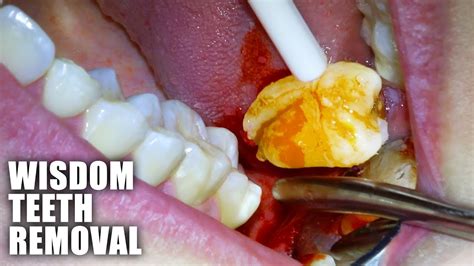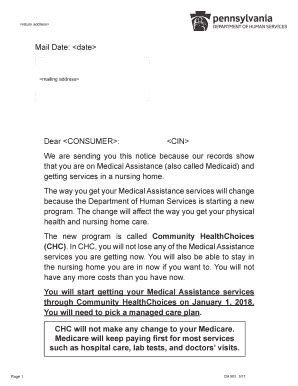Intro
Learn about wisdom teeth removal surgery, including extraction procedures, recovery tips, and post-operative care, to ensure a smooth and safe experience, alleviating impaction, infection, and pain, with expert guidance on oral surgery and dental health.
The decision to undergo wisdom teeth removal surgery is a significant one, and it's essential to understand the process, benefits, and potential risks involved. For many individuals, wisdom teeth can be a source of discomfort, pain, and anxiety, making it crucial to explore the available options and make an informed decision. In this article, we will delve into the world of wisdom teeth removal surgery, providing a comprehensive guide to help you navigate the process with confidence.
As we grow and develop, our teeth play a vital role in our overall health and well-being. Wisdom teeth, also known as third molars, typically emerge between the ages of 17 and 25, and their development can be a complex and sometimes problematic process. For some, wisdom teeth grow in correctly and do not cause any issues, while for others, they can become impacted, leading to a range of complications. Impacted wisdom teeth can cause pain, swelling, and infection, making it necessary to consider surgical removal.
The importance of addressing wisdom teeth issues cannot be overstated. If left untreated, impacted wisdom teeth can lead to serious health problems, including abscesses, cysts, and even tumors. Furthermore, wisdom teeth can also affect the surrounding teeth and gums, leading to overcrowding, tooth decay, and gum disease. By understanding the risks and benefits associated with wisdom teeth removal surgery, individuals can make informed decisions about their oral health and take proactive steps to prevent potential complications.
What is Wisdom Teeth Removal Surgery?

The surgical process typically involves making an incision in the gum tissue to access the impacted tooth. The dentist or surgeon will then carefully remove the tooth, taking care to minimize damage to the surrounding tissue. In some cases, the tooth may need to be broken into smaller pieces to facilitate removal. Once the tooth has been extracted, the incision will be closed with stitches, and the patient will be provided with instructions for post-operative care.
Benefits of Wisdom Teeth Removal Surgery
The benefits of wisdom teeth removal surgery are numerous and can have a significant impact on an individual's overall health and well-being. Some of the most significant advantages include: * Relief from pain and discomfort: Wisdom teeth removal surgery can provide instant relief from pain and discomfort caused by impacted teeth. * Prevention of infection: By removing impacted wisdom teeth, individuals can prevent the risk of infection and abscesses. * Reduced risk of overcrowding: Wisdom teeth removal can help to prevent overcrowding and promote a healthier, more balanced smile. * Improved oral hygiene: With wisdom teeth removed, individuals can more easily maintain good oral hygiene, reducing the risk of tooth decay and gum disease.Preparation and Planning

What to Expect During Recovery
The recovery process after wisdom teeth removal surgery can vary depending on the individual and the complexity of the procedure. However, there are some common things to expect, including: * Pain and discomfort: Individuals can expect to experience some pain and discomfort after the procedure, which can be managed with pain medication. * Swelling and bruising: Swelling and bruising are common after wisdom teeth removal surgery and can be managed with ice packs and elevation. * Bleeding: Some bleeding is normal after the procedure, but excessive bleeding can be a cause for concern. * Dietary restrictions: Individuals may need to follow a soft food diet for several days after the procedure to allow the gums to heal.Risks and Complications

Cost and Insurance
The cost of wisdom teeth removal surgery can vary depending on the location, dentist or surgeon, and complexity of the procedure. On average, the cost can range from $500 to $2,000 per tooth. However, many insurance plans cover wisdom teeth removal surgery, and individuals should check with their provider to determine the extent of their coverage.Aftercare and Follow-up

Conclusion and Next Steps
In conclusion, wisdom teeth removal surgery is a common and effective procedure for addressing impacted wisdom teeth. By understanding the benefits, risks, and complications associated with the surgery, individuals can make informed decisions about their oral health. If you're considering wisdom teeth removal surgery, it's essential to schedule a consultation with a dentist or oral surgeon to discuss your options and determine the best course of treatment.What is the average cost of wisdom teeth removal surgery?
+The average cost of wisdom teeth removal surgery can range from $500 to $2,000 per tooth, depending on the location, dentist or surgeon, and complexity of the procedure.
How long does it take to recover from wisdom teeth removal surgery?
+The recovery time for wisdom teeth removal surgery can vary depending on the individual and the complexity of the procedure, but most people can return to normal activities within 3-5 days.
What are the risks and complications associated with wisdom teeth removal surgery?
+The risks and complications associated with wisdom teeth removal surgery include dry socket, infection, nerve damage, and sinus complications, although these are rare and can be managed with proper care and follow-up.
We hope this comprehensive guide has provided you with the information and insights you need to make informed decisions about your oral health. If you have any further questions or concerns, please don't hesitate to reach out to a dentist or oral surgeon for personalized advice and guidance. Share your thoughts and experiences with us in the comments below, and don't forget to share this article with friends and family who may be considering wisdom teeth removal surgery.
